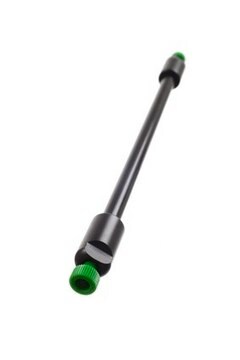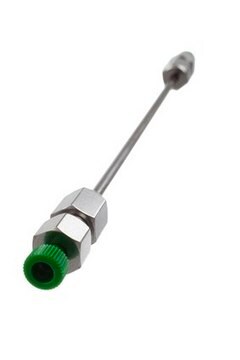1.50447
SeQuant™ ZIC®-HILIC 200Å (3.5 µm) HPLC Columns
L × I.D. 100 mm x 2.1 mm HPLC Column, PEEK-lined stainless steel
Synonym(s):
Zwitterionic Hydrophilic Interaction Liquid Chromatography HPLC Column
About This Item
Recommended Products
product name
SeQuant™ ZIC-HILIC™ 3.5µm,200Å 100 x 2.1 mm, PEEK-lined stainless steel column, suitable for HPLC
material
PEEK-lined stainless steel column
Quality Level
Agency
suitable for USP L114
product line
SeQuant™
feature
endcapped: no
parameter
550 bar pressure
70 °C max. temp.
technique(s)
HPLC: suitable
LC/MS: suitable
UHPLC-MS: suitable
UHPLC: suitable
mass spectrometry (MS): suitable (High)
column L × I.D.
10 cm × 2.1 mm
matrix
fully porous particle
matrix active group
ZIC-HILIC bonding phase
particle size
3.5 μm
pore size
200 Å pore size
operating pH
2-7.5
separation technique
hydrophilic interaction (HILIC)
storage temp.
no temp limit
General description
Analysis Note
Symmetry (Cytosine): 0.95 - 1.40
Legal Information
Not finding the right product?
Try our Product Selector Tool.
Certificates of Analysis (COA)
Search for Certificates of Analysis (COA) by entering the products Lot/Batch Number. Lot and Batch Numbers can be found on a product’s label following the words ‘Lot’ or ‘Batch’.
Already Own This Product?
Find documentation for the products that you have recently purchased in the Document Library.
Customers Also Viewed
Articles
This article evaluates different phase chemistries for stationary phases in Hydrophilic Interaction Liquid Chromatography (HILIC) and uses multivariate analysis for classification based on chemical modification.
Our team of scientists has experience in all areas of research including Life Science, Material Science, Chemical Synthesis, Chromatography, Analytical and many others.
Contact Technical Service









